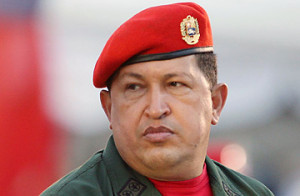By: Tiffany Walker
Hugo Chavez was the President of Venezuela from 1999 until 2013. Chavez was a the leader of the Fifth Republic Movement from 1997 until 2007 when the group then merged with other political parties to create the United Socialist Party of Venezuela. Chavez described himself as a Marxist. At the beginning of Chavez’s presidency his policies were moderate and capitalist. At first, Chavez believed that capitalism was the economic model for Venezuela, but not the exact capitalism of the United States. Chavez advocated an end to corruption, increased welfare programs, and redistribution of the country’s wealth. However, Chavez used his growing popularity to take control over the three branches of government. The supportive majority was large enough to pass a law that gave the President power to implement various laws by announcement.
Following Chavez death the country has been in disarray. One year after the death of Chavez political turmoil had taken over the country, and left hundreds injured and detained. Chavez’s government polarized some of the Venezuelan public; Human Rights Watch, Transparency International, and Freedom House all condemned the government of Chavez for political discrimination and censorship. Chavez left a country divided along political and socioeconomic lines. The country has also been suffering from crime and violence.
Chavez’s successor, Nicolas Maduro, has had to face demonstrations over high inflations, crime, and shortages of basic goods. There have been empty shelves at markets due to the economic crisis. Some have even gone so far to say that Venezuela is on the path to a failed nation. Venezuela without Chavez has not grown in strength, but has weakened. The country has not shown many signs of improvements, but hopefully new leadership will be implemented and new policies will be enacted.

